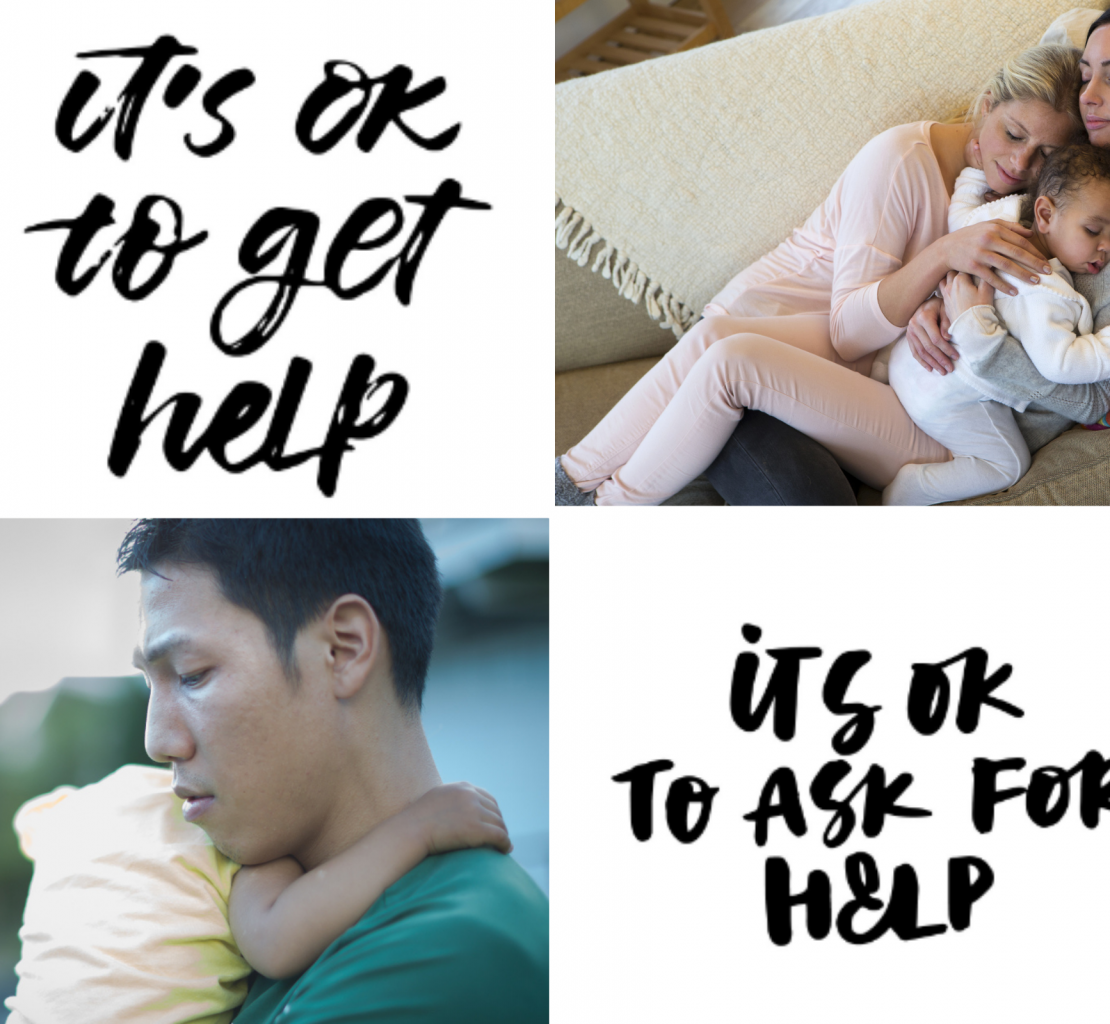Postpartum Depression
Updated January 17th, 2024

Many different feelings come with being a new parent. They can range from happiness and joy to unexpected sadness and feeling overwhelmed.
In the first few weeks after giving birth about 75% of new mothers have mood swings, worry a lot and cry easily. They may feel weepy, overwhelmed, irritable, tired and have trouble sleeping. This is normal and is caused by changing hormones and adjusting to parenting. These “baby blues” usually begin a few days after birth and often go away on their own by two weeks. If they don’t go away you may have postpartum depression.
I in 8 new parents experience postpartum depression. It can affect mothers, fathers, adoptive parents, LGBT2SQ+ parents, co-parents, parents who gave birth and step parents. Postpartum depression is caused by physical and emotional factors and can start anytime in the first year after the birth.


Often other people will be the first to notice that something isn’t quite right and express concern. Only a qualified healthcare provider can make a diagnosis.
How do I know if I have postpartum depression?
If you have been experiencing any of the following for two weeks or more, talk to a health care provider:
- Strong feelings of sadness or emptiness
- Feeling hopeless, anxious, trapped, overwhelmed, out-of-control or worthless
- Can’t stop crying
- Constant fatigue, even after resting
- Trouble falling asleep or wanting to sleep all the time
- Difficulty concentrating or making simple decisions
- Loss of interest in activities and relationships you usually enjoy
- Changes in appetite or weight
- Often irritable or angry
- Difficult to care for self or your baby
- Resenting your baby
- Little or no interest or pleasure in your baby
- Worrying a lot about your baby’s health or safety
- Afraid to be alone with your baby
- Scary thoughts of harming yourself or your baby
Postpartum depression can be treated. There is help.
- If you think you have postpartum depression, seek help as soon as possible and talk to your:
- Health care provider or midwife. (If you do not have a health care provider and would like one- use the Family Doctor Finder Program website or call1-866-690-8260).
- Public health nurse.
If you are having thoughts of harming yourself or your baby, or are in crisis:
Call:
- Suicide Crisis Helpline 9-8-8
- Klinic Community Health Centre Crisis Line (24 hours/7 days a week) 1-888-322-3019
- Manitoba Suicide Line (24 hours/7 days a week)1-877-435-7170 or visit the website a reason to live
- First Nations and Inuit Hope for Wellness Help Line 1-855-242-3310 (service is available in Cree, Ojibway, Inuktitut, English and French)
- WRHA Mobile Crisis Service 204-940-1781 (24 hours/7 days a week)
- Winnipeg Emergency Services Operator 911
If you need more information and help finding resources call Health Links-Info Santé at 204-788-8200 or 1-888-315-9257
Tips for coping with postpartum depression
- Ask friends and family for support
- Take care of yourself by:
- napping when baby naps
- eating nourishing foods
- drinking lots of water
- going for walks
- Using controlled breathing or meditating to help you relax
- Practicing mindfulness
How to support someone with postpartum depression:
- Encourage her or him to talk to a health care provider as soon as possible
- Go with her or him to appointments
- Talk about how he or she is feeling
- Reassure them
- Ask family and friends for understanding or support
- Taking care of the baby so your partner can rest
- Help out with the daily house work and chores
- Do skin to skin contact with baby
Note: Some new parents will experience postpartum depression, anxiety or have both at the same time.
**NEW Printable Postpartum and Anxiety handout***
References and for more information:
Postpartum Depression Association of Manitoba
Canadian Mental Health Association, Postpartum Depression
Pacific Postpartum Support Society
Postpartum Support International